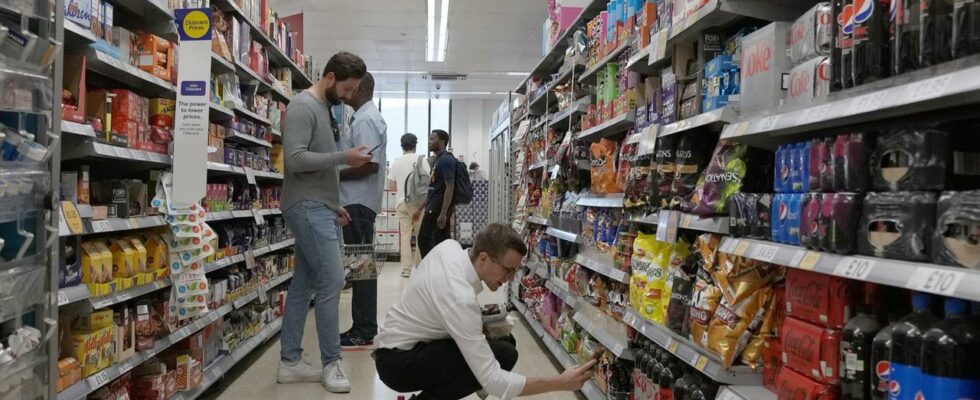In the UK, there has been a sugar tax on sweetened drinks for six years. Although it is having an effect, the government has postponed further regulations. Even fast-food entrepreneurs don’t like it.
Many Brits love soft drinks, but many Brits also weigh too much. This is exactly where the sugar tax comes in. Officially it is called the “Soft Drinks Industry Levy”, i.e. it is a tax that soft drink manufacturers have to pay on drinks that contain a lot of sugar.
The taxation is staggered: from five grams of sugar per 100 milliliters, the tax is 18 pence per liter, from 8 grams of sugar, 24 pence per liter. “Action on Sugar” is campaigning for precisely this kind of government intervention. The organization consists of doctors and scientists who warn of the negative consequences of excessive sugar consumption.
The tax is helpful, says nutrition expert Mhairi Brown, spokeswoman for Action on Sugar: “It provides a great incentive for drinks manufacturers to reduce the sugar content in order to avoid the tax.”
Tempting offers fuel sugar consumption
In fact, many manufacturers have reduced the sugar content of their soft drinks. While in 2015 almost 50 percent of the drinks sold in supermarkets contained more than five grams of sugar per 100 milliliters, in 2019 this figure had fallen to just 15 percent. In addition, a study by Cambridge University suggests that the sugar tax reduced obesity among ten- and eleven-year-old girls by eight percent.
The sugar tax is only one part of a whole package with which the conservative government wanted to combat obesity in recent years. However, key components have been postponed further and further. Since autumn 2022, supermarkets have no longer been allowed to place “impulse goods” at the checkouts – for example, chocolate bars at children’s eye level in the waiting area in front of the checkout. But the ban on tempting offers for junk food, originally planned for October 2023, will now only come into effect in autumn 2025.
The government justified the postponement with the current high food prices and cost of living. The tempting offers include “buy one get one free” offers, where, for example, if you buy a bar of chocolate, you get another one for free. According to experts, offers of this kind lead to a nearly doubling of chocolate consumption.
“Health is the nation’s greatest asset”
Progress in the area of advertising has also been slow. The plan was that unhealthy foods could only be advertised on television after 9 p.m. and not advertised online at all. This law has also been postponed until October 2025. Nutritionist Mhairi Brown believes that the argument that the food industry would need more time to prepare is a pretext. She believes that the government has caved in to the lobbyists.
Henry Dimbleby believes this too. The author of several cookbooks and co-founder of the Leon fast-food chain, which offers “healthier fast food”, was once an advisor to the British Ministry of Agriculture and Food. He was supposed to help in the fight against obesity, but eventually gave up.
Dimbleby accuses the government of failure: “Winston Churchill said the health of the nation was its greatest asset. The role of governments is to intervene to solve problems. But the modern conservative ideology is that you can let everything run its course without ever intervening,” he criticises. “It will be very damaging to the country if that doesn’t change.”
Dimbleby is certain that the British health system is facing enormous costs. In England, almost one in four ten- and eleven-year-old children is already obese, and 38 percent of this age group are overweight. The figure for adults is 64 percent.
Gabi Biesinger, ARD London, tagesschau, 18.06.2024 14:12

